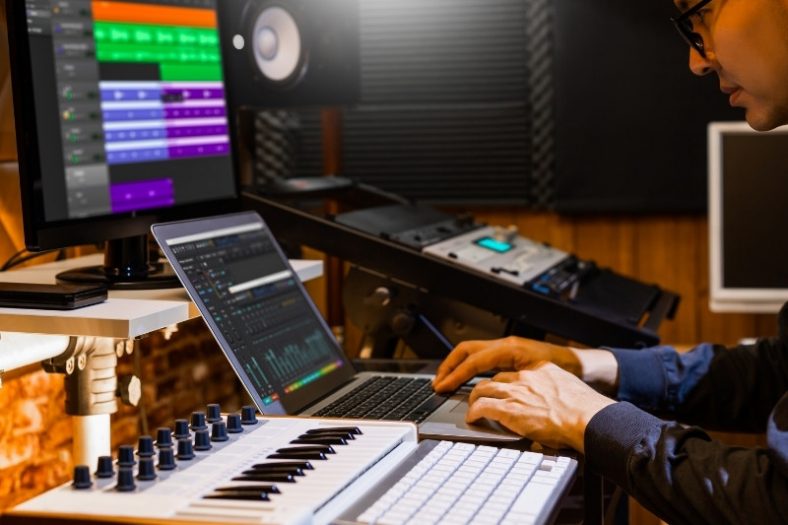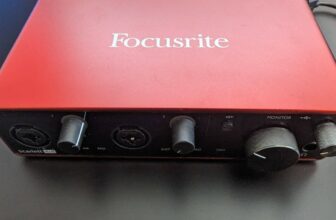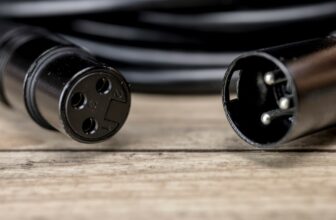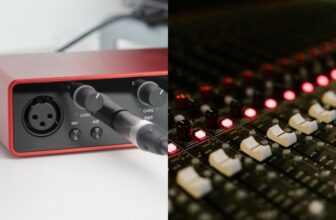How Much Does It Cost To Master A Song?

Mastering a song costs anywhere between $10 and $200. Generally, the price you pay for mastering a song is directly related to the quality of the mastering. If you’re a music producer, you can try to learn how to master your songs; however, keep in mind mastering is a highly technical job.
Here’s a general breakdown of how much mastering a song costs, depending on the quality of the audio engineer:
Contents
- AI mastering – approximately $10 per song
- Day-to-day mastering services – $40 to $75 per song
- Top-tier mastering services – $150 to $200 per song
- Additional costs of mastering a song
- What do mastering engineers do?
- How do I submit a song for mastering?
- Should I pay someone to master a song?
- How long does it take to master one song?
- Is mastering the same as mixing?
- How much difference does mastering make?
- Conclusion
AI mastering – approximately $10 per song
Price per album (any number of tracks): approximately $10
AI-based mastering software is becoming more and more common, and it makes for the most affordable mastering solution in the market. In places like LANDR, you can master a song and even a whole album for as little as $10 (which is the approximate cost of their monthly subscription). There’s a catch, though…
There’s one single disadvantage to AI-based mastering services, but it’s a big one: there are no humans involved in the process! While some AI-mastered tracks sound pretty good, others aren’t quite there yet. Relying on AI mastering is still unpredictable, as it lacks the artistic touch of a flesh-and-bone audio engineer.
Day-to-day mastering services – $40 to $75 per song
Price per album (10 tracks): between $400 and $750
Depending on where you live and how complex your music is, you should expect to pay around $40 to $75 for day-to-day mastering services. By day-to-day, I’m referring to professional mastering services involving experienced, but not renowned audio engineers and studios. With day-to-day mastering services, you should expect to get a radio-ready, streaming-friendly, good-sounding track.
A big plus of day-to-day mastering (in comparison with AI mastering) is that you can talk with the audio engineers to offer some artistic guidelines and (in some cases) ask for a few alternate versions.
Top-tier mastering services – $150 to $200 per song
Price per album (10 tracks): between $600 and $2400
By top-tier, I’m referring to audio engineers and studios that have a nationwide and even international reputation that should get you the best possible results. Unbelievably enough, any musician can get a song mastered by a Grammy Award-winning engineer for as little as $200.
With three Grammys in the bag, the renowned American audio engineer/author Bob Katz charges $200 per hour for his services and can master a whole album in as little as three hours. All the info is available on this website.
Bob Weston is another world-class audio engineer that can get one of your songs mastered for as little as $150. Known for his rock records and for collaborating with the great Steve Albini, Weston asks for just $150 per five minutes of material.
Additional costs of mastering a song
| Bouncing a reference master track | up to $25 per album |
| Bouncing alternate versions | around $50 per song |
| DDP master for CD manufacturing | up to $75 per album |
| Vinyl cutting master | up to $75 per album |
| Cassette duplication master | up to $75 per album |
| Changes to the original master | usually the same hourly fee |
What do mastering engineers do?
While these can vary from audio engineer to audio engineer, mastering work usually include the following five services:
1. Dynamics adjustment
This is the most crucial aspect of mastering. A good mastering engineer should be able to make a song sound louder and in-your-face without making it sound distorted or overly flat (learn more about the importance of audio dynamics).
Dynamics adjustment is usually achieved through compression and volume automation. The compression brings all the sounds in a song up and makes it sound tighter, while volume automation ensures some of the song’s original dynamics are kept in place.
2. Equalization adjustment
When you change the dynamics in a song, the song will necessarily sound different. Equalization adjustment (achieved through the use of EQs) helps to make a song cohesive and ensures that it isn’t hitting frequencies that are either too low or too high.
Good mastering engineers should also pay attention to any annoying ringing and should be able to shape (albeit subtly) the sonic nature of the song.
This is arguably the most creative stage of the mastering process, and it sure helps to have some high-quality, old-school analog hardware in hand (for character).
3. Technical sound adjustments
These include dealing with any audio issues and artifacts that may arise during the mastering process. Stuff like removing unwanted clicks and noises, adding fades and crossfades, and doing some audio restoration work (if needed).
4. Sequencing and spacing (for albums)
Mastering more than one song forces the mastering engineer to pay attention to the overall cohesiveness of an album, EP, or two-side single. In other words, he or she must ensure that the transitions between tracks are smooth and that one song doesn’t sound radically different from the other.
Additionally, the mastering engineer needs to sequence and space the album according to the instructions of the musician.
5. Metadata encoding
The least “musical” aspect of the job, metadata encoding is the process of associating certain standard codes (such as UPC, QC, and ISRC) with each of the mastered songs. These codes have the purpose of ensuring that the songs are ready for music distribution and release.
How do I submit a song for mastering?
Before submitting a song for mastering, you should pay close attention to the instructions provided by the audio engineer or studio you’ve chosen. Don’t hesitate in contacting them directly and don’t forget to read all the provided guidelines as carefully as possible.
Song-submission instructions vary extensively, and some engineers are more “picky” than others. However, most will generally worry about three things: headroom, bit depth, and overly-compressed tracks.
Dealing with headroom
Headroom is the amount of volume or gain that can or cannot be applied to an audio file before it starts clipping. Audio clipping is one of the worst nightmares of an audio engineer. Before submitting a track for mastering, make sure there’s some headroom to work with. A range of -3 to -6dB should be sufficient.
Dealing with bit depth
To deal with bit depth, check the instructions provided by your mastering engineer. If your mastering engineer asks for a different bit depth (for example, if your song was recorded at 32-bit and the engineer asks for 24-bit bounces) you need to dither your master before exporting.
A flat dither (or ‘Triangular’ in Ableton Live) is recommended. Dither ensures that your song won’t lose quality when converting from one bit-depth to another during the bouncing process.
Dealing with overly-compressed tracks
Dealing with overly-compressed tracks is a bit more complicated. If you’ve mixed your songs yourself, just reduce the wetness of your compressors a little bit (especially if you have one in the master bus). If not, your only option is to contact your mixing engineer and ask him or her to make some changes.
Mastering engineers hate overly-compressed tracks because it makes their job a lot harder; shaping dynamics is a big part of their work and overly-compressed tracks are characterized for having little to no dynamic range.
Should I pay someone to master a song?
Unless you know a lot about what you’re doing, you should pay for professional mastering services. If you’re just having fun, you can experiment with mastering your songs; but if you want to be a commercially-released artist, doing it right is a must.
How long does it take to master one song?
It depends on the quality of the engineer, but mastering one song shouldn’t take more than two hours. Many can get it done in 30 minutes or less.
Is mastering the same as mixing?
Mixing and mastering use a lot of the same tools, but mastering is mainly about shaping the dynamics of a finished song so it sounds good within the context of commercially-released songs and other songs on an album/EP. Mixing is about balancing the elements in each track (i.e., the vocals, the guitar, the drums, etc.) in a harmonious way.
Check out our article to learn more about the differences between mastering and mixing.
How much difference does mastering make?
Mastering doesn’t always make a huge difference in terms of sound. It should make a song feel much louder and more cohesive, but this is sometimes subtle. However, professional mastering is the process that ensures that your tracks are ready to play on streaming websites and radio stations without any issue. It also ensures that a song is up-to-the-norm, meaning it will not sound significantly different from other commercially released songs.
Conclusion
Mastering is a process that shapes the dynamics of a song so it is ready for commercial release. It is important to pay for professional mastering services if you want your song to be ‘on-par’ and sound its best. Mastering generally doesn’t make a huge difference in terms of sound but can make a song feel louder and more cohesive. It is a vital step in the music-making process.





